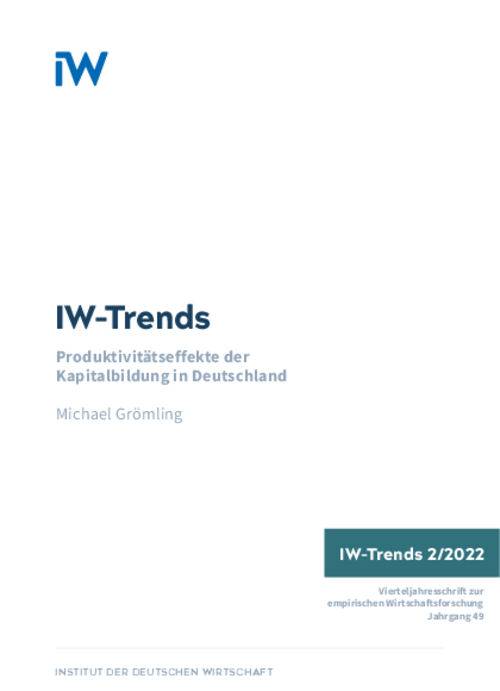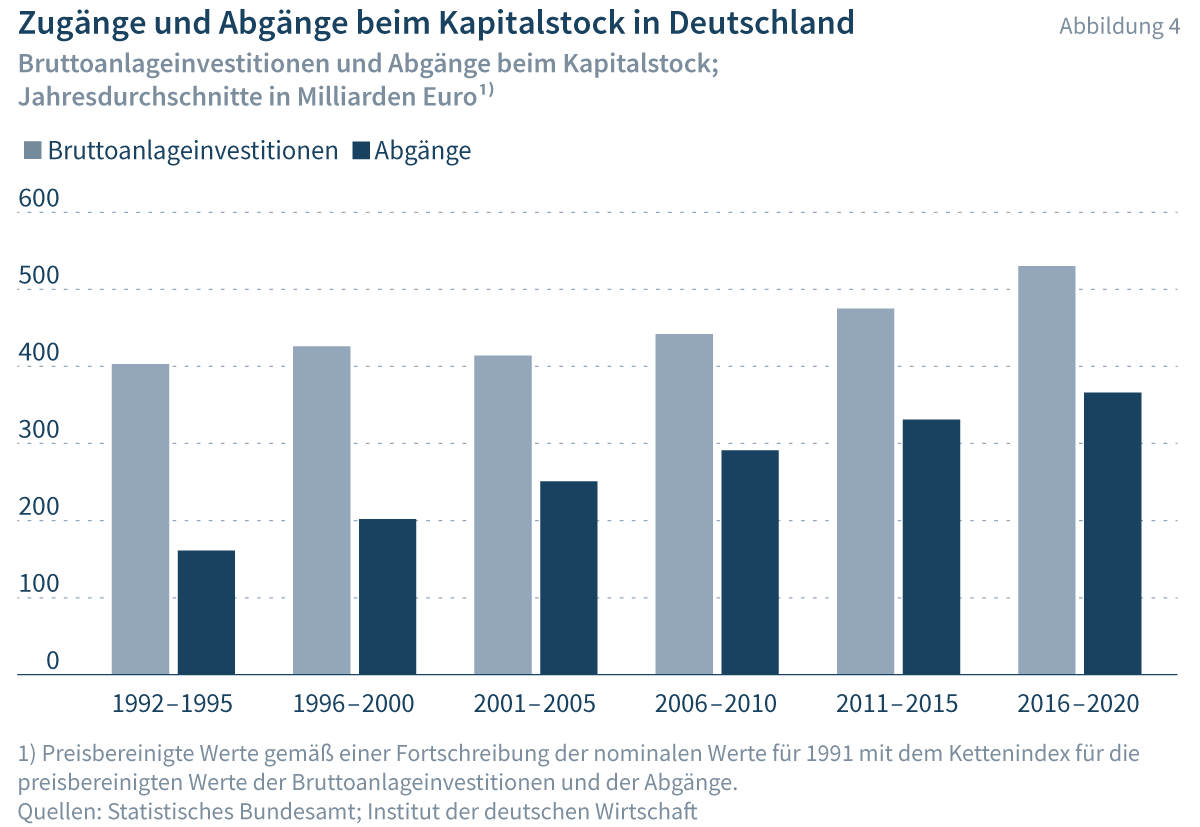Despite broad-based digitalisation, productivity advances in Germany in recent years have been considerably lower than in previous decades. This paper conducts a growth accounting which points to steeply declining stimuli from technical progress and especially from capital formation.

The Productivity Effects of Capital Formation in Germany

Despite broad-based digitalisation, productivity advances in Germany in recent years have been considerably lower than in previous decades. This paper conducts a growth accounting which points to steeply declining stimuli from technical progress and especially from capital formation.
Using gross capital as a measure of the capital stock, our analysis indicates the available production potential and potential capital services. It also provides starting points for a direct assessment of past investment performance and for devising economic policy measures to boost productivity. The paper concludes that the development of the capital stock depends on the extent to which current investment exceeds capital stock retirement. A rise in investment per labour unit does not necessarily lead to an increase in either capital intensity or labour productivity. Analyses of the structure and development of the capital stock and the resulting productivity must take account of obsolescence in the factors of production, which varies greatly according to the type of investment. Modern capital goods in particular are subject to a high rate of innovation and thus also to rapid obsolescence. Even a comparatively high level of investment in digital capital goods and especially in intangibles may therefore not necessarily result in a correspondingly high growth in the capital stock.


The Productivity Effects of Capital Formation in Germany

More on the topic

Effects of the Middle East conflict on the German economy
Beyond the humanitarian crisis associated with the geopolitical conflict in Israel, which affects millions of human lives, the Middle East conflict also leaves lasting marks on economic activity not only in the affected region, but also in Germany and the ...
IW
Corporate Insolvencies on the Increase
After a prolonged decline, the number of corporate insolvencies has begun to rise again. The slight increase in 2022 could be interpreted as a step towards normalisation after the sharp drop experienced during the 2020/21 Covid19 pandemic.
IW